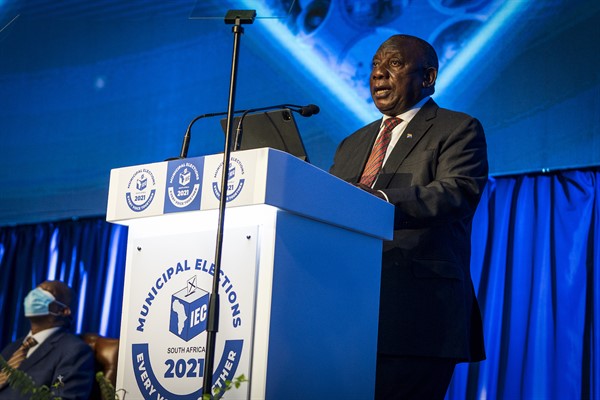For South Africa’s long-ruling African National Congress party, the outcome of local elections on Nov. 1 was a predictable disaster. The polls took place against a troubled backdrop for the ANC, which has struggled through a perfect storm of challenges and missteps this year: a lack of tangible economic progress, poor public service delivery, chronic power shortages, the worst violent unrest since 1994 and seemingly endless allegations of corruption—all unfolding amid a global pandemic that caused South Africa’s largest economic contraction in a century. All of this virtually guaranteed the party would face a backlash at the ballot box.
When the votes were tallied, the ANC’s vote share had fallen to 45.6 percent, its lowest in any South African election of the democratic era and 8 points down from the 54 percent share it took in the 2016 local elections, which was considered a major disappointment at the time. The ANC lost over 600 municipal council seats as the party saw its support decline across all nine provinces. It secured outright majorities in only two of the country’s eight biggest cities, meaning the once-dominant ANC will now have to accept coalition government as the new normal in many parts of the country.
Some of the party’s most serious losses came in South Africa’s two most populous provinces of Gauteng—where the ANC took only 36 percent—and Kwazulu-Natal. The hemorrhaging of votes in these two provinces is a particularly bad omen for the ANC ahead of the 2024 general election, raising the prospect of the party slipping below 50 percent in a national poll for the first time.

